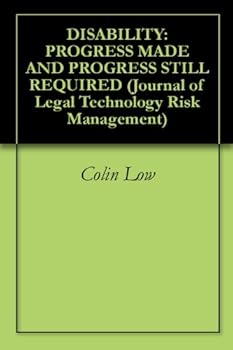

I thought I would begin by looking back at what things were like 30, 40 or even nearly 50 years ago when I first stepped out into the world from my special school for the blind, and compare them with what they are like today—to see how far they have come, how much they have changed and what the primary agents of change have been. After that we'll be able to consider what remains to be done to provide better accessibility for disabled people. I think we will find that things have changed quite a bit, particularly in the way we conceptualize and think about disability, but I think we may also find that the situation on the ground is not as transformed as we might like, and that there has not always been a transformation in practice to match the change in thinking.
When I went to university in the early 1960s, the systems for dealing with disabled students were at best informal, but more often non-existent. So far as I was concerned, you could get books in braille—not yet on tape—if they happened to exist in the limited collection held by the Royal National Institute of Blind People (RNIB), or otherwise you recruited your own readers from the girls' colleges—it's remarkable how much better at reading girls were always thought to be! The university set aside a special room in the library for blind students to work with their reader, and permitted them to take out books that other students couldn't. But apart from that they pretty much left blind students to get on with it. The tutor might provide a bit of extra advice about reading, but the idea of the library or the college having their own braille or scanning facilities to provide blind students with independent access to books, reading lists, handouts—all that sort of thing—was unheard of. For exams, they put blind students in rooms by themselves, with nothing more than an invigilator, the paper in braille and a bit of extra time.
No comments:
Post a Comment